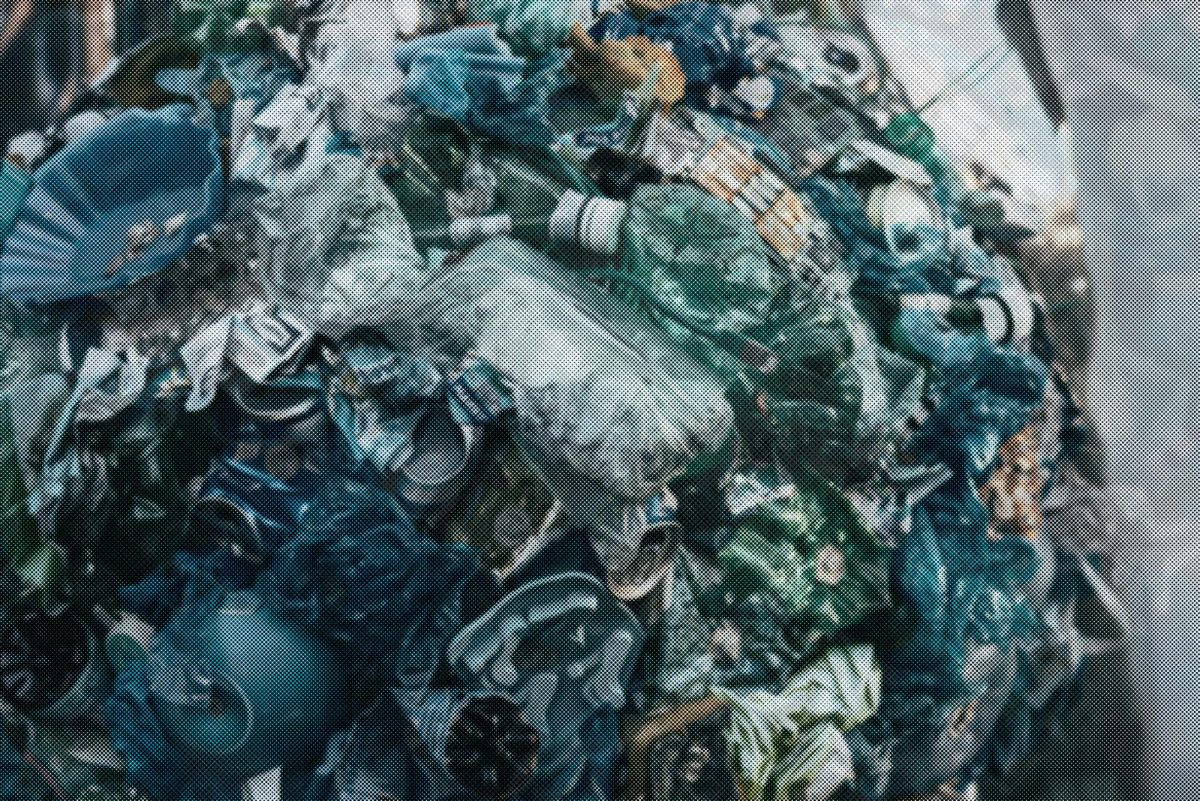Microplastics are accumulating worldwide. Whether chipped off larger plastic objects, or made deliberately into items like glitter, they put human and environmental health in danger.
Plastic-associated industries use deceptive tactics that prevent plastic and microplastic mitigation. These industries must start reducing plastic production. The government fails to keep these industries in check and exacerbates plastic dangers by permitting unsafe chemicals in plastics. The government must mitigate plastic — and microplastic — accumulation and start regulating unsafe plastic substances.
Industry Deception
The blame for plastic and microplastic accumulation falls largely on plastic and petrochemical companies. Erica Cirino, communications manager for the Plastic Pollution Coalition, said these companies have “deceived and distracted the public” through tactics like lobbying and propaganda.
Plastic industries wrongfully place the responsibility for plastic mitigation on consumers. They also distract us with mitigation strategies like litter cleanup and recycling.
Keep America Beautiful is one organization — focused on plastic litter cleanup — that was created by the packaging and beverage industries. It historically supported harmful single-use disposables and continues partnering with top plastic polluters today. Industries use this organization to draw attention away from the main problem — plastic production — and cover their tracks through litter cleanup.
Recycling is another deceptive tactic. Less than 10% of the plastic entering recycling facilities is recycled. Petrochemical and plastics industries know that recycling is ineffective. Regardless, they continue producing mostly non-recyclable plastics while pretending that recycling is a valid solution for waste management.
Corporations like ExxonMobil and Formosa Plastics seek to expand plastic production rather than mitigate its harms. Cirino said they are “making fortunes from others’ misfortunes.”
Plastic and petrochemical companies must stop their slew of distractions and deceptions. The government must also enforce regulations and incentives that keep companies in check and mitigate plastic production.
Cirino added we need “policymakers to … cast strong regulation that … addresses [plastic issues] at the source.”
Government Complacency
The government is also to blame for the plastic crisis.
Microplastics are dangerous partly because of the chemicals they contain. The government allows chemicals to be used in plastics without testing for their safety. Further, the plastic industry lacks transparency about the chemicals they use.
The burden of identifying chemicals used is now falling on outside groups. One such group found 16,000 different chemicals present in plastics. At least 26% of them are hazardous. Astonishingly, only 6% of the chemicals are regulated. Given that chemical-containing plastics and microplastics are all around us, this realization is chilling.
As Cirino puts it, the current system is “skewed in favor of chemical companies.”
She added human and environmental health protections are “way slower to be recognized and respected and implemented.” This is entirely unethical.
While the plastic industry’s actions are unacceptable, the government is entirely complacent in them. Their inaction shows an outright disregard for the environment and public health. The government must demand chemical safety testing and regulation for harmful plastic chemicals.
Alarms for Human Health
Microplastics are found throughout the human body. This includes breast milk and vital organs like the liver, lungs, kidneys and heart. Mice studies even show microplastics in the brain and subsequent cognitive decline.
While more research on the health effects of microplastics is needed, current research indicates we should be alarmed. Microplastics have been linked with increased risk for heart attacks, strokes and cancer. They also disrupt hormones and cause obesity and fertility loss.
Worldwide births per woman have been dropping nearly 1% annually since 1960. Chemicals found in plastic are a significant contributor to such fertility declines. If the government does nothing, there may be no future generations to use the plastic that it so vehemently supports.
Phthalates are one health and fertility-reducing chemical used in plastics. They are found inside more than 95% of humans. The presence of these plastic chemicals within our bodies is widespread and deeply unnerving.
Microplastics and plastic chemicals sit inside some of the body’s most vital and sensitive areas. This can be very damaging to human health. As microplastics accumulate, the government must provide better plastic mitigation strategies, chemical safety testing and regulations.
Environmental Harms
Microplastics are found in the deepest parts of the ocean to the highest mountain peaks. They contaminate soil, sediment, water, air, organisms and outer space.
“[This is] not a great legacy to leave,” Cirino said.
Plastic particles endanger organisms across food chains, disrupt photosynthesis and cause inefficient carbon cycling and increased atmospheric carbon. Plastic is also harmful during its production, use and disposal. It caused 1.8 billion tons of greenhouse gas emissions in 2019.
State and federal governments must ban single-use plastics like shopping bags. They must hold corporations responsible for plastic waste and create incentives for their improvement.
Harm Reduction
Utahns have every reason to be diligent with plastic mitigation and to demand legislative action. Utah legislators are hesitant to limit plastic use and fall far behind several other states. Our individual contributions may seem small, but we have the power to push for change.
At home, we can reuse plastic items, repurpose old containers and avoid overly packaged items or single-use plastics.
We can also switch to natural fibers or buy second-hand clothing. A significant percentage of oceanic microplastics come from synthetic fibers. We can also avoid deliberately producing microplastics like microbeads and glitter.
Many people support plastic mitigation strategies, and issues surrounding microplastics have gained recent attention. Plastic-associated industries, governments and individuals can all make positive change. It is time to forge a better path. Rather than succumbing to the challenges of plastic, we can build a legacy as the generation who overcame them.





Noah Garcia • Aug 24, 2024 at 10:07 pm
Aye, this is a terrifying subject. Plastics cause so many problems as this article suggested, but they also show up in so many different things. They are the straw in my water bottle. The surfaces inside my car. The lining inside of an aluminum can of soda. They wrap almost all food. They make up the containers we take our food to go in. Ropes are made with them. ALMOST ALL OUTDOOR GEAR IS MADE WITH THEM (oddly ironic).
The problem is that some of them are so useful too. We could easily swap some use cases, but what would replace our waterproof fabrics? What would be as strong as nylon?
It seems like not only the scale of plastics is deeply unsettling, but how far we’ve invested into them and using good properties from them. What can we do to replace all of them? I’ve been trying to think about what could be done to replace them and it seems like an impossible task because it’s not just plastic but so many different plastics. Plastics are so cheap too. If companies already charge us so much for products that contain plastics, how much more expensive will our world be when they demand the same profit margins without plastics?
It will be crazy to think of a world without them not because we NEED plastics but because we are so deeply entrenched in using them that we can’t ever think of a way to cover all of their different applications.
Aye, it’s a terrifying subject, especially when you bring things like PFOA into the mix. We HAVE to change as soon as possible. Just like the climate, which might be fixable, we are building a worse and worse world without continued use. Integrating a function of humanity’s despair.
Thank you for writing this letter. I don’t think we are getting the word out quick enough!
Jay C. Hansen • Aug 22, 2024 at 3:07 pm
This article needs much wider circulation than is possible in its given venue. May I suggest submission to ProPublica or TheIntercept?